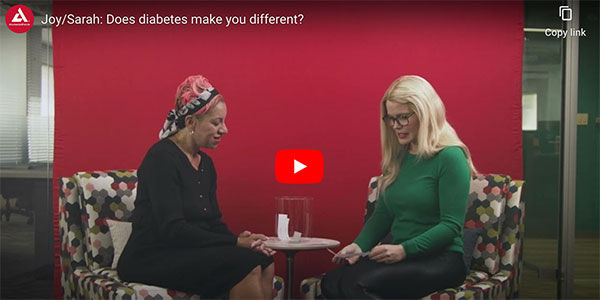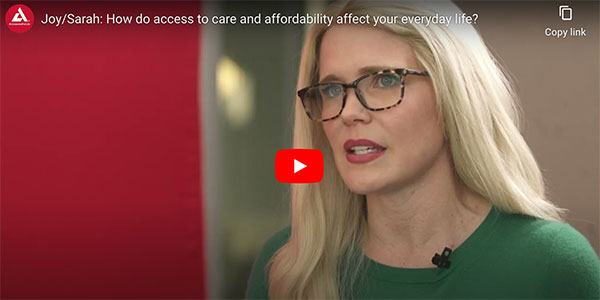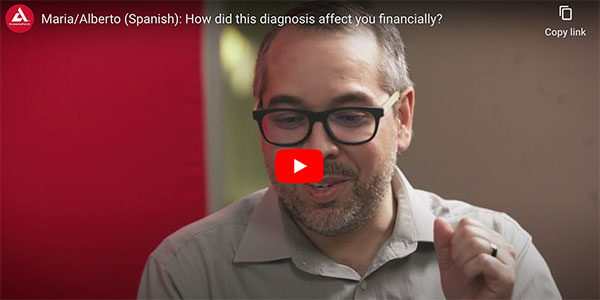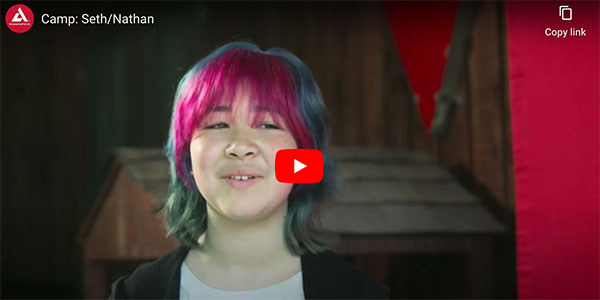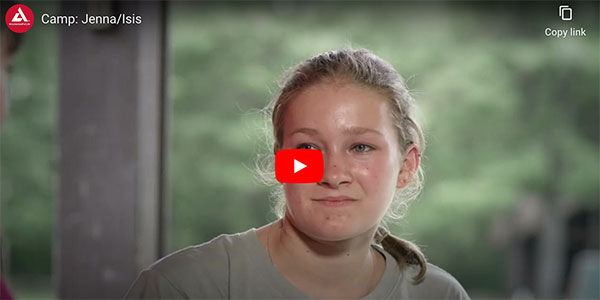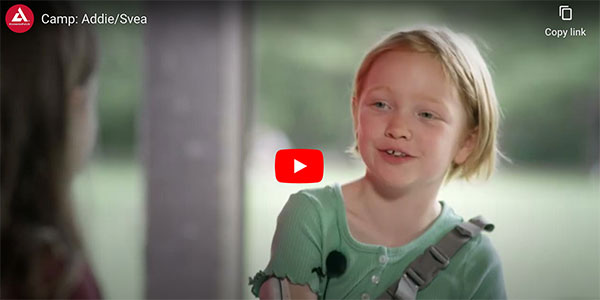
The Difference Series
The Difference Series brings questions to strangers who share their lived experiences with diabetes. From youth campers to adults and parents of children with diabetes, The Difference Series takes you along on their journeys.
Explore firsthand stories discussing the challenges and financial burdens accompanying a diabetes diagnosis and stories of bravery from youth living with diabetes to adults who feel more empowered over their diabetes management through the years.
Explaining Diabetes to Friends
Hunter and John, both diagnosed with type 1 diabetes in their childhood, share how they’ve learned to explain diabetes to their friends, especially when their blood glucose (blood sugar) goes high (hyperglycemia) or low (hypoglycemia), which affects how they think and react.
Evolving in Diabetes Management
Hunter and John discuss how they have evolved in their diabetes management after being diagnosed with type 1 diabetes at an early age. John talks about how he’s embraced an active lifestyle, while Hunter explains how he has maximized his productivity by better managing his blood glucose (blood sugar) levels.
Advocating for Insulin Affordability
Sarah, a mother of a six-year-old daughter living with type 1 diabetes, explains how she champions access to health care and affordable insulin for all. She also opens up about her financial challenges, even with insurance, shortly after her daughter’s diagnosis.
The Long-Term Financial Implications of Diabetes/</br>Las implicaciones económicas a largo plazo de la diabetes
Maria, living with type 2 diabetes, and Alberto, whose 7-year-old daughter lives with type 1 diabetes, discuss the financial burdens of insulin and diabetes care costs. Alberto describes paying $500 monthly for his daughters’ insulin and the financial implications that will carry into adulthood.</br></br>María, que padece diabetes de tipo 2, y Alberto, cuya hija de 7 años padece diabetes de tipo 1, hablan de las cargas económicas que suponen la insulina y los costes del cuidado de la diabetes. Alberto describe el pago mensual de 500 dólares por la insulina de su hija y las implicaciones económicas que tendrá en la edad adulta.
Learn About ADA Camps
What to Expect at ADA Camp
Children living with diabetes share their experiences attending an American Diabetes Association (ADA) Camp. From connecting with other kids with diabetes, learning diabetes self-management skills in a medically safe environment, having fun, and making lifelong friends, hear what it’s like at an ADA Camp.
Meeting Other Children Living with Diabetes
Seth and Nathan, both living with type 1 diabetes, describe what it’s like to attend an ADA Camp with other kids living through similar experiences. Instead of feeling alone, they connect with kids who understand some of the challenges and find ways to embrace the journey.
Attending Your First ADA Camp
ADA Camper Jenna describes her first camp experience shortly after her type 1 diabetes diagnosis at age six. Attending camp was the first time she met other kids living with type 1 diabetes. Jenna and Isis, also diagnosed with type 1 diabetes, explain how excited they are to attend ADA Camp every year to connect with their peers.
Feeling Brave and Empowered at ADA Camp
Campers Addie and Svea, both living with type 1 diabetes, discuss how attending an ADA Camp has made them feel more empowered to take control of their diabetes management. Explaining their diabetes “firsts,” Addie explains learning how to operate her insulin pump herself, while Svea describes learning how to put her pod on her arm.




